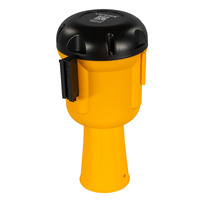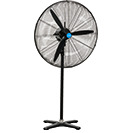What Are Modular Workbenches?
Date Posted:12 May 2025
Need a workspace that's built for your workflow? Don’t overlook the modular workbench solution.
Modular workbenches are revolutionising modern workspaces by offering unmatched flexibility compared to traditional fixed workbenches.
Designed to be adaptable, they allow users to customise their layout, expand functionality, and reconfigure elements as work demands evolve.
This makes them particularly valuable in dynamic environments where tasks and workflows frequently change.
Unlike traditional benches that have a fixed layout and purpose, modular workbenches support innovation and scalability.
In this blog, we’ll explore what modular workbenches are, why they’re a smart investment, and how to select the right setup for your business or workspace.
To learn about the basics of benches in the workplace, see our blog about What Are Workbenches Used For?
What Is A Modular Workbench?
A modular workbench is a highly configurable workstation designed for versatility and efficiency.
These benches consist of core components such as adjustable legs, customisable surfaces, and attachable modules like drawers, shelves, and lighting.
The modularity allows businesses to tailor the bench setup according to the specific tasks being performed. From assembly, packaging, testing, or repairs.
If you are searching for a workbench solution suitable for the home, learn more in our industrial vs residential workbenches blog.
Because they are reconfigurable, modular workbenches can evolve with the business. As workflow requirements change, additional modules can be added or removed without replacing the entire setup.
This ability to adapt makes modular workbenches a practical solution for industries where efficiency and space optimisation are crucial.
They not only support various job roles but also improve ergonomic conditions and workspace organisation.
As one of Australia’s leading material handling equipment supplier, our highly customisable modular workbenches are available in the following series:
.jpg)
Key Benefits of Modular Workbenches
Flexibility
The primary benefit of modular workbenches is their unparalleled flexibility. Unlike fixed benches, they allow users to adjust the configuration as needed.
This means you can start with a basic setup and add components like tool racks, lighting systems, or overhead shelves as your requirements grow.
Scalability
Scalability is another major advantage. As businesses expand or shift focus, modular workbenches can be modified without the need for a complete overhaul.
Adaptability
Their adaptability also makes them perfect for multi-user environments where each worker may have different needs.
Space-Saving
Furthermore, modular workbenches improve space utilisation and workflow efficiency.
By creating a workstation that fits the task, businesses reduce wasted space and minimise unnecessary movement. This improves productivity while supporting a safer, more organised work environment.
Industries That Benefit from Modular Workbenches
Modular workbenches are ideal for a wide range of industries, particularly those requiring customisable, task-specific setups, and are a key component of efficient industrial workplace equipment.
In warehouses and logistics centres, they streamline packing and sorting operations by incorporating shelving, labelling systems, and storage bins.
Manufacturing plants also benefit from modular setups, particularly in assembly lines where workers may need different tools and equipment within reach. The ability to tailor the workspace improves output and reduces fatigue.
Electronics assembly and repair industries appreciate the anti-static surfaces, lighting, and small-parts storage options that can be integrated into a modular bench.
In maintenance and repair shops, modular benches enable technicians to create efficient, task-oriented stations with tool hooks, parts drawers, and power access.
Choosing the Right Modular Workbench for Your Business
Selecting the right modular workbench starts with evaluating your workspace and identifying your team’s daily tasks.
Measure the area where the bench will be placed to ensure there’s adequate space for movement and potential expansion.
The, think about the type of work being performed.
-
Does your team require anti-static surfaces, power outlets, or extra lighting?
-
Would height-adjustability benefit different users or improve ergonomics?
Determine what features are non-negotiable and which can be added later.
Consider modular components that support organisation, like shelves, trays, and pegboards. Opt for heavy-duty materials if your tasks involve tools or machinery.
There are other types of workbenches used in industrial workplaces that we supply at Verdex, including:
By aligning the bench configuration with your specific tasks, you’ll maximise productivity and future-proof your investment.
.jpg)
Advantages of Modular Workbenches Over Traditional Fixed Workbenches
Modular workbenches have several advantages over traditional fixed setups.
-
First and foremost, they are adaptable. Traditional benches often limit how the space can be used, whereas modular ones can be reconfigured for different tasks, team sizes, or workflows.
-
They also support business growth. As your needs evolve, you can expand or modify a modular bench rather than purchasing a new one entirely. This makes them more cost-effective over time.
-
Modular benches are ergonomic and can be customised for specific users or tasks, reducing the risk of injury and improving comfort. They also help with workspace organisation, as tools and materials can be stored within easy reach.
-
Finally, modular benches offer better long-term value by accommodating future changes in layout, equipment, or personnel.
Cost vs. Flexibility: Is a Modular Workbench Worth the Investment?
While modular workbenches often come with a higher upfront cost compared to fixed benches, their long-term value is significant.
The ability to adapt the workstation to changing needs reduces the need for future replacements and costly modifications.
Their flexibility means you can optimise workflow efficiency and improve worker satisfaction, which contributes to increased productivity and reduced downtime.
In short, modular workbenches are an investment that pays off through improved performance, adaptability, and cost savings over time.
If you require a customised solution to fit your business operations, try our workbench configurator online to get the shelving, storage and accessories you want and need.
Enquire About Our Modular Workbenches
In today’s fast-paced industrial and commercial environments, flexibility is key. Modular workbenches offer the adaptability, scalability, and ergonomic benefits required to meet the diverse needs of modern businesses.
Whether you're outfitting a warehouse, assembly line, or repair shop, a modular setup enables your team to work smarter and more efficiently.
By investing in a system that grows with your business, you not only ensure long-term value but also create a safer, more productive workspace.
If you’re looking to upgrade your work environment, consider modular workbenches as a future-ready solution.
Reach out to our team to learn more or explore our range online. Get in touch with us by:
-
Filling out our contact form
-
Emailing sales@verdex.com.au
FAQs
What makes a workbench modular?
A modular workbench consists of configurable components like adjustable legs, add-on drawers, shelves, and tool panels that can be customised or expanded to meet specific tasks.
Can I add accessories to my modular workbench later?
Yes, modular workbenches are designed for expansion. Accessories such as lighting, storage bins, and tool racks can be added as your needs evolve.
How much weight can a modular workbench support?
Weight capacity varies by model, but many modular workbenches are built to support 250–1,000 kg depending on materials and frame design.
Are modular workbenches suitable for heavy-duty tasks?
Yes, many modular benches are engineered for industrial use and feature reinforced frames and durable surfaces to handle heavy-duty work.
How easy is it to reconfigure a modular workbench?
Modular benches are designed for easy reconfiguration. Components can typically be rearranged or swapped out using basic tools, making changes simple and quick.


































































































































 Trolleys & Hand Trucks
Trolleys & Hand Trucks Cage Trolleys
Cage Trolleys Cleaning Carts & Trolleys
Cleaning Carts & Trolleys Construction Trolleys
Construction Trolleys Custom Trolleys
Custom Trolleys Hand Trucks & Dollies
Hand Trucks & Dollies Laundry/Linen Trolleys
Laundry/Linen Trolleys Lifting Trolleys
Lifting Trolleys Order Picking Trolleys
Order Picking Trolleys Panel Cart Trolleys
Panel Cart Trolleys Platform Trolleys
Platform Trolleys Powered Trolleys
Powered Trolleys Shelf & Tiered Trolleys
Shelf & Tiered Trolleys Shopping Trolleys
Shopping Trolleys Stainless Steel Trolleys
Stainless Steel Trolleys Tool Trolleys
Tool Trolleys Utility & Service Carts
Utility & Service Carts Lifting & Handling Equipment
Lifting & Handling Equipment Forklift Attachments
Forklift Attachments Jib Attachments
Jib Attachments Lifting Hoists & Pallet Hooks
Lifting Hoists & Pallet Hooks Load Skates & Tow Tugs
Load Skates & Tow Tugs Manual Stackers & Lifters
Manual Stackers & Lifters Pallet Jacks
Pallet Jacks Pallet Lifters
Pallet Lifters Pallet Rotators & Dispenser
Pallet Rotators & Dispenser Powered Pallet Trucks & Electric Lifters
Powered Pallet Trucks & Electric Lifters Scissor Lift Trolleys and Tables
Scissor Lift Trolleys and Tables Conveyor Equipment
Conveyor Equipment Conveyor Frames & Stands
Conveyor Frames & Stands Roller & Skate Conveyors
Roller & Skate Conveyors Ladders & Access Equipment
Ladders & Access Equipment Container & Yard Ramps
Container & Yard Ramps Ladders & Step Stools
Ladders & Step Stools Work Platforms & Crane Cages
Work Platforms & Crane Cages Drum Handling Equipment
Drum Handling Equipment Drum Storage & Bunding
Drum Storage & Bunding Drum Trolleys & Lifters
Drum Trolleys & Lifters Forklift Drum Handling
Forklift Drum Handling Waste Handling & Bins
Waste Handling & Bins Bin Lifters & Tippers
Bin Lifters & Tippers Plastic Waste & Wheelie Bins
Plastic Waste & Wheelie Bins Steel Waste & Tipping Bins
Steel Waste & Tipping Bins Waste Carts
Waste Carts Dangerous Goods Storage & Spillage
Dangerous Goods Storage & Spillage Aerosol Cans Storage Cages
Aerosol Cans Storage Cages Bunded Pallets & Storage
Bunded Pallets & Storage Corrosive Goods Storage Cabinets
Corrosive Goods Storage Cabinets DG Storage & Trolleys
DG Storage & Trolleys Flammable Liquid Cabinets
Flammable Liquid Cabinets Forklift Gas Storage Cages
Forklift Gas Storage Cages Gas Cylinder Storage Bays
Gas Cylinder Storage Bays Site Storage
Site Storage Spill Kits
Spill Kits Shelving & Storage Equipment
Shelving & Storage Equipment Stillage & Transport Cages
Stillage & Transport Cages 750 Series Cage Configurations
750 Series Cage Configurations Heavy Duty Cabinets
Heavy Duty Cabinets Heavy Duty Shelving
Heavy Duty Shelving Mega Bins & Pallets
Mega Bins & Pallets Packing & Workbenches
Packing & Workbenches Parts Trays & Stor-Pak Bins
Parts Trays & Stor-Pak Bins Pegboard & Louvre Panels
Pegboard & Louvre Panels Plastic Bins & Crates
Plastic Bins & Crates Plastic Handling Solutions Bins
Plastic Handling Solutions Bins Plastic Pallets
Plastic Pallets Stack & Nest Bins
Stack & Nest Bins Pallet Racking Accessories
Pallet Racking Accessories Workplace Equipment
Workplace Equipment Modular Workbenches
Modular Workbenches Electric Height-Adjustable Workbenches
Electric Height-Adjustable Workbenches Floor Matting
Floor Matting General Workplace Equipment
General Workplace Equipment Industrial Weighing Scales
Industrial Weighing Scales Packaging Machinery
Packaging Machinery Stationery Cupboards
Stationery Cupboards Storage and Stillage Cages
Storage and Stillage Cages Tool Trolleys
Tool Trolleys Tooling Cabinets
Tooling Cabinets Workshop Fans and Coolers
Workshop Fans and Coolers Safety Barriers, PPE & Signage
Safety Barriers, PPE & Signage Modular Safety Fence System
Modular Safety Fence System Barriers & Bollards
Barriers & Bollards First Aid Equipment
First Aid Equipment Gloves, Knives and PPE
Gloves, Knives and PPE Signage
Signage Cleaning & Site Supplies
Cleaning & Site Supplies Cleaning Equipment
Cleaning Equipment Cleaning Trolleys
Cleaning Trolleys Rubbish Bins
Rubbish Bins Signs & Traffic Supplies
Signs & Traffic Supplies Construction Equipment
Construction Equipment Construction Trolleys
Construction Trolleys Waste Handling
Waste Handling General Site Equipment
General Site Equipment Concrete Equipment
Concrete Equipment Site Storage
Site Storage Lifting Equipment
Lifting Equipment Verdex Specials
Verdex Specials









